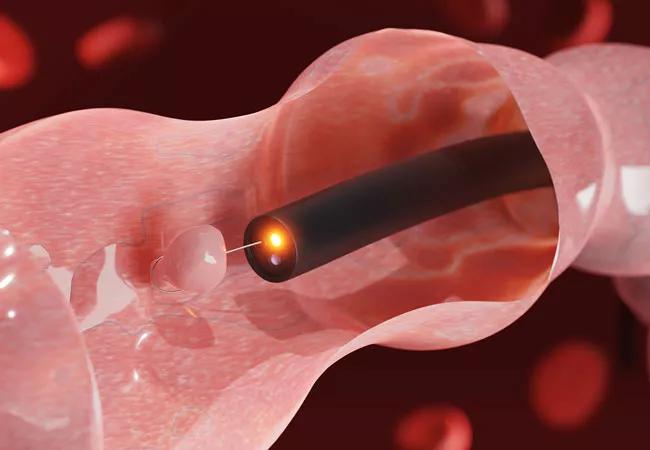Larger polyps can be difficult to remove, but there are options

Image content: This image is available to view online.
View image online (https://assets.clevelandclinic.org/transform/e4c7e6a8-2f09-432b-9ac0-319f205f3b05/colonPolyp-1313475792-770x533-1_jpg)
colonoscopy finding a polyp
The results of your colonoscopy come back with some … well, big news. You have colorectal polyps — and they’re large. It turns out that some polyps can grow to the size of a person’s thumb.
Advertisement
Cleveland Clinic is a non-profit academic medical center. Advertising on our site helps support our mission. We do not endorse non-Cleveland Clinic products or services. Policy
Sizeable polyps can be tough to remove. Often, these giants can’t be taken out during a colonoscopy. So, what do you do now? And will surgery be necessary?
Colorectal surgeon I. Emre Gorgun, MD, explains your options.
The concern about a colon polyp being cancerous grows with the size of the polyp, says Dr. Gorgun. Polyps larger than 20 millimeters (mm) have a 10% chance of being cancerous. They need to be taken out and tested.
By comparison, studies show that few smaller polyps measuring less than 5 mm are cancerous.
All colorectal cancers arise from benign, precancerous polyps, so it’s important to remove them before problems grow. Smaller polyps often can be easily removed during a colonoscopy. (That procedure is known as a polypectomy.)
Unfortunately, larger polyps can be difficult to remove because:
Advertisement
Given the complications noted above, a polypectomy may not be the best approach for removing larger colon polyps. Here are other options.
Endoscopic submucosal dissection (ESD) is an advanced way of doing surgery through the same tube used for a colonoscopy. This technique has been increasingly used over the past decade, says Dr. Gorgun.
Tiny knives cut away the polyp during the procedure, allowing for a more thorough removal. (During a polypectomy, removal is done with a wire loop snare that doesn’t offer the same precision.)
It’s considered a minimally invasive procedure and is typically done on an outpatient basis.
One of the big benefits of ESD? It could prevent you from needing a more aggressive surgery known as a colectomy. (More on that below.)
There have been concerns raised about an increased risk of bleeding following an ESD compared to a polypectomy. But Dr. Gorgun says he believes that the risk may actually be less given the surgeon’s ability to better see blood vessels.
The risk of perforating your bowel is higher with ESD than with polypectomy, however.
Some doctors may refer patients with large polyps for a colectomy, a surgery to remove part or all of their colon. It’s a major abdominal procedure that could lead to a colostomy.
While a colectomy may be needed, make sure to explore your options, advises Dr. Gorgun. (Learn about one patient’s decision-making process in this Cleveland Clinic Quick Case video.)
“Be sure to get a second opinion from a doctor experienced in advanced polypectomy techniques,” Dr. Gorgun advises. “Removing polyps gets trickier as they get bigger, but some doctors may be more comfortable than others removing large polyps.”
Advertisement

Sign up for our Health Essentials emails for expert guidance on nutrition, fitness, sleep, skin care and more.
Learn more about our editorial process.
Advertisement
Focus on exercise, eating healthy and getting regular screenings to help lower your risk
Chronic inflammation from flare-ups can damage the lining of your intestinal wall, making your colon more vulnerable to cancer
Colonoscopies and sigmoidoscopies are types of endoscopies, procedures that look at the health of your large intestine
A steady increase in cases in those younger than 50 started decades ago
If you’re at average risk, it’s recommended that you get your first colonoscopy at age 45
It’s a slow-moving process that offers an opportunity for early detection and treatment
At-home screening options can be good detection tools, but a colonoscopy remains the gold standard
Knowing your family history and getting a genetic test can help detect colorectal cancer earlier
Although it could be used as a moisturizer, this new trend is not recommended
Communicating clear limits helps protect your time, energy and emotional well-being
High cholesterol can be genetic, but testing and treatment can lower your heart disease risk